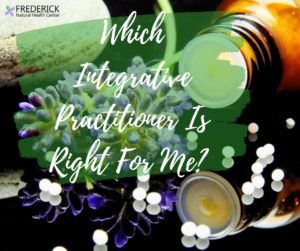Spring Is Around The Corner: Natural Tips For Seasonal Allergies
While it’s not official yet, it feels like Spring is already upon us. I’m thrilled that I’ll soon be able to open my windows, pack up my winter coat, and spend more time outside.
Spring is a time of renewal and starting fresh. Just as the plants begin to poke up out of the ground and our landscape turns lush and green again, it is a time for us to start new projects or rekindle the motivation to improve our health, a motivation that may have been dormant during the Winter.
The one thing that could dampen this excitement are the dreaded allergies that accompany this beautiful season. It’s hard to enjoy the new freedom from a winter wonderland when you have a runny nose, nasal congestion, itchy eyes and throat, sneezing, and fatigue.
Seasonal allergies (aka allergic rhinitis) affects 20% of the population and costs the United States well over $3 billion a year in direct medical costs.
While knowing that you are not alone in your struggle against allergies may not lessen the burden, thankfully there are some natural tools which may also provide much needed and drug-free relief, before you reach for the Claritin.
Food Is medicine
Some simple nutritional modifications can have a great effect on the severity of your allergies.
Identifying and eliminating underlying food sensitivities from meals can help to decrease inflammation and potentially lessen your immune system’s response to seasonal allergies. I’ve now had several patients no longer suffering from seasonal allergies just from removing their food sensitivities.
If identifying and committing to avoiding your food allergies sounds like too much work, consider adding foods high in vitamin C, such as broccoli, cauliflower, citrus, bell peppers, Brussels sprouts, and rosehips. Vitamin C acts to prevent the release of histamine, a biochemical substance in your body that is responsible for the watery nose and runny eyes, from mast cells. Vitamin C could be thought of as a natural Benadryl, which is an anti-histamine.
And while cutting an onion to cook might make your watery eyes temporarily worse, the flavonoids they contain can also reduce allergy symptoms. Don’t forget, onions are great for that pesky cold or flu.
Key Supplements For Allergies
If you’re really looking for that extra support and don’t feel quite right without some supplements on board, quercetin and n-acetylcysteine may become your new go-tos.
Quercetin, a flavonoid, also inhibits histamine being released as well as prevents inflammatory substances, such as leukotrienes, from being produced in the first place. In fact, quercetin is structurally similar to cromolyn sodium, an anti-inflammatory medication that is commonly prescribed for allergies.
N-acetylcysteine (NAC) is one of my personal favorites that I always keep on hand during allergy season. Not only does NAC, an amino acid derivative, break up mucous, but it’s a great antioxidant precursor.
Keep It Clean
If you’ve been putting off Spring cleaning, you may want to break out the broom sooner rather than later. Dusting, vacuuming, and washing your linens at least once a week can help to reduce your allergen exposure, thereby decreasing seasonal allergy symptoms.
If you have pets that spend time outdoors, consider bathing them more frequently during allergy season. Pollens can become trapped in their fur and be a trigger, especially if you’re like a lot of pet owners who show affection with kisses and petting.
And if you’re thinking about any home renovations soon, you may opt for hardwood floors or tile in lieu of carpet. Carpets can trap allergens, allowing you to track in pollen and other offenders from the outside to re-expose yourself again and again.
But don’t forget about cleaning internally as well! Nasal irrigation has been used for centuries in India by yogis as a way to improve nasal breathing and thereby improve meditation.
It specifically works by flushing out the allergens like pollen that are causing your body to react with congestion and sneezing as well as decreasing some of the mucous causing the congestion. More recently, studies have shown that use of saline nasal irrigation (such as a neti pot) over a limited period of time improved nasal symptoms and quality of life, decreased use of medication, and had no adverse health effects.
Plants For Allergies
Stinging nettle (Urtica diocia) has long been used as a natural antihistamine. Steep the tea for 8 hours or find freeze-dried nettles at your local health food store for some allergy relief.
Eyebright (Euphrasia stricta) is a drying herb that helps to reduce mucus leading to congestion. It can even help reduce watery eyes.
While we typically associate elderberry (Sambucus nigra/canadensis) with immune support, like eyebright, it can help reduce mucus and works to stabilize mast cells, similar to vitamin C.
If tea’s not your thing, try greening up your space. Indoor air pollution is 2-5 times worse than outdoor air pollution and can alter your immune system’s response to allergens. Adding indoor plants to help lessen your indoor air pollution burden can help with allergies, not to mention enhance your decor.
Other Tools And Considerations
Another consideration may be to keep track for days of high pollen exposure, using an app such as Weather.com, and be proactive by beefing up your anti-allergen regimen during that time.
In addition, homeopathy, acupuncture, and hydrotherapy can offer support to help reduce your body’s reaction to circulating allergens.
Lastly, one lesser known cause of allergy symptoms can be adrenal fatigue. If you’ve been dealing with more stress than usual, it may be contributing to your allergies. Take steps to reduce your stress whether that’s working with a counselor, starting a meditation or journaling practice, or moving your body.
Whatever tool or combination of tools works for you, view your allergy symptoms as a sign that your immune system is overexcited and needs support to function properly. The sooner you reduce your allergy symptoms, the sooner you can enjoy the beauty that is Spring and renewal.
 Previous Post
Previous Post Next Post
Next Post

